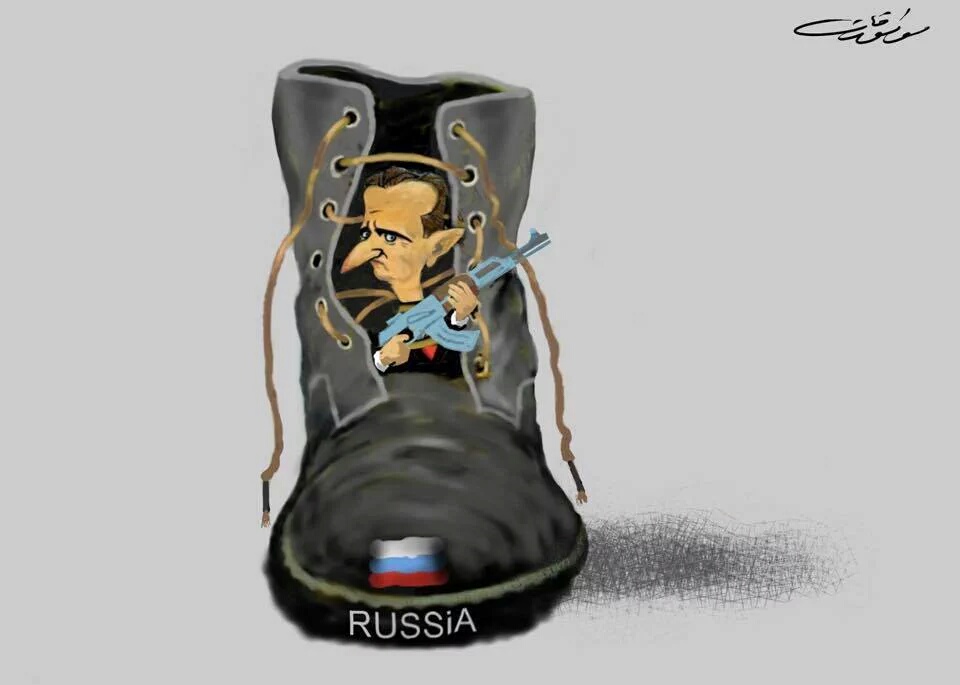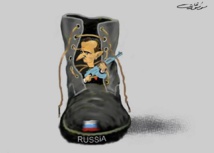Since multinational talks on Syria late last month in Vienna, top diplomats from all the countries involved have been negotiating behind the scenes over which groups and which individuals would sit opposite the Assad regime if the nations are able to arrange talks to end the civil war. On the sideline of the last Vienna meeting, Russia even floated a list of 38 names of people Moscow believes should represent the Syrian opposition. Other countries, including the U.S., have their own lists handy.
But Syrian opposition groups say representatives chosen by outside powers will have no credibility and therefore no success.
"We call for the participation of Syrians in this process," said Hassan Hachimi, a member of the political committee of the Syrian National Coalition, a political organization supported by the West composed mainly of opposition leaders living outside Syria. "For the international community to pick and choose who will be involved in the process is not going to work because there will be a lot of backlash on the ground."
Hachimi was part of a delegation of Syrian opposition representatives visiting the U.S. last week to present the results of a two-year project that brought together a wide swath of Syrian political groups, ethnic groups and fighting brigades. Over 1,000 Syrians participated in hundreds of meetings to come up with their own proposal for how to move toward peace. They are now circulating a paper with their proposals to governments around the world.
The project, originally begun at the Brookings Institution in Doha, included Alawites, Sunnis, Kurds, Salafists and Christians. Islamist and secular fighting brigades alike participated. Local leaders inside Syrian cities were engaged. The Syrian Muslim Brotherhood took part. The only large groups that weren't included were the Islamic State and Al Nusrah Front.
"There's a lot of negativity and skepticism that Syrians can ever come together. This broad spectrum is showing in this document that you can," said Salman Shaikh, who led the project at Brookings Doha before he stepped down as its director this year. He continues to work on the project.
He said the project was meant to create a neutral space where Syrians opposed to the regime could come together. Many of the meetings took place in Oslo and Stockholm. The project was funded by Sweden, Britain the Netherlands, Norway and Canada.
A delegation of Syrians representing the project met last week with White House, State Department and United Nations officials to present their work. They met with UN representatives from four out of five permanent members of the Security Council, including U.S. Ambassador Samantha Power. They also met with the leaders of the House Foreign Affairs and Senate Foreign Relations Committees.
The basic strategy for the Syrian opposition, as laid out in the document, is not far off from what was envisioned by the Geneva Communique, which the U.S. and Russia signed off on in 2013. The paper begins with a call for a cessation of violence, especially attacks on civilian populations, and an end to blocking of humanitarian assistance. These would build confidence toward more concrete negotiations between the Syrian opposition and the regime on a political agreement.
But instead of having outside powers pick who should represent the Syrian opposition, the participants want a "national opposition consultative process" that would lead to a conference during which Syrian opposition representatives would be selected, with input from all groups involved. That conference would choose who sits at the table across from the Assad regime.
The Syrians who participated in the project also have a list of demands that would form the basis for their position in those negotiations. They want all power transferred to a transitional governing body, as is called for in the Geneva Communique. They say Syrian President Bashar al Assad should "play no part" in the interim government. The body would set up constitutional reforms and prepare for elections, after which a national dialogue would be convened with the aim of repairing various aspects of Syrian society.
The participants are also calling for a countrywide no-fly zone, the release of prisoners on all sides of the conflict, an international observer force on the ground, an arms embargo on the regime, and the withdrawal of all foreign forces from Syria. The Syrian government and its allies are unlikely to agree to these.
Over all, the Syrians who are part of the project reject the contention made by Russia and Iran that all armed rebels are "terrorists" and therefore must be excluded from political negotiations.
"Credibility, a background in politics, negotiations skills, and representative legitimacy will constitute important competencies for members of an opposition negotiating team," the paper states. "A key role should be assigned to members of revolutionary armed groups and individuals who are known for their integrity and nationalism with influence on the ground."
For the project's Western organizers, this paper is an achievement in itself: Over 1,000 Syrians from various groups that don't see eye to eye on much agreed on a way forward.
Many inside the U.S. government believe that the only way to make progress in Syria is to work primarily with Russia and Iran and then bring in the Syrian opposition later, to have them endorse whatever solution the big powers can agree to. But members of the Syrian opposition don't want anyone else negotiating for them. They want to be at the table from the beginning. They say that's the only way a sustainable peace is possible.
-------------
Bloomberg view
----------------------
This column does not necessarily reflect the opinion of the editorial board or Bloomberg LP and its owners.









 Home
Home Politics
Politics











